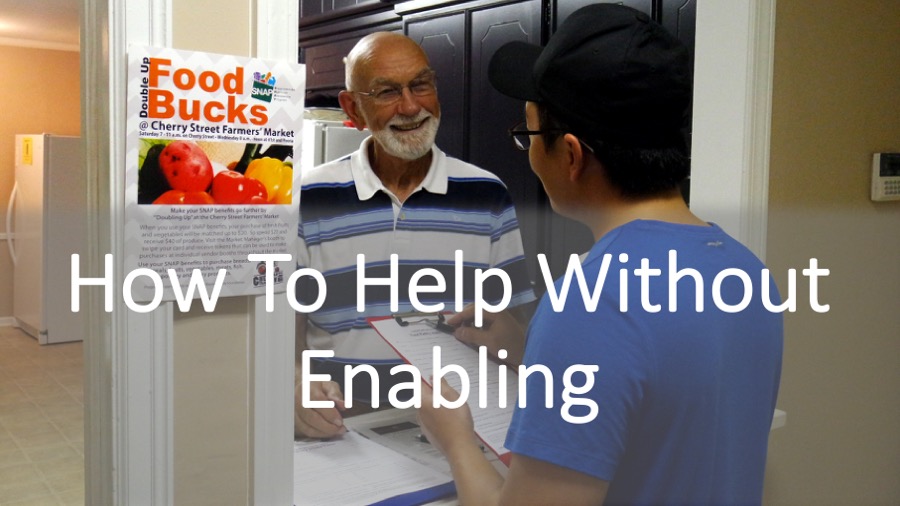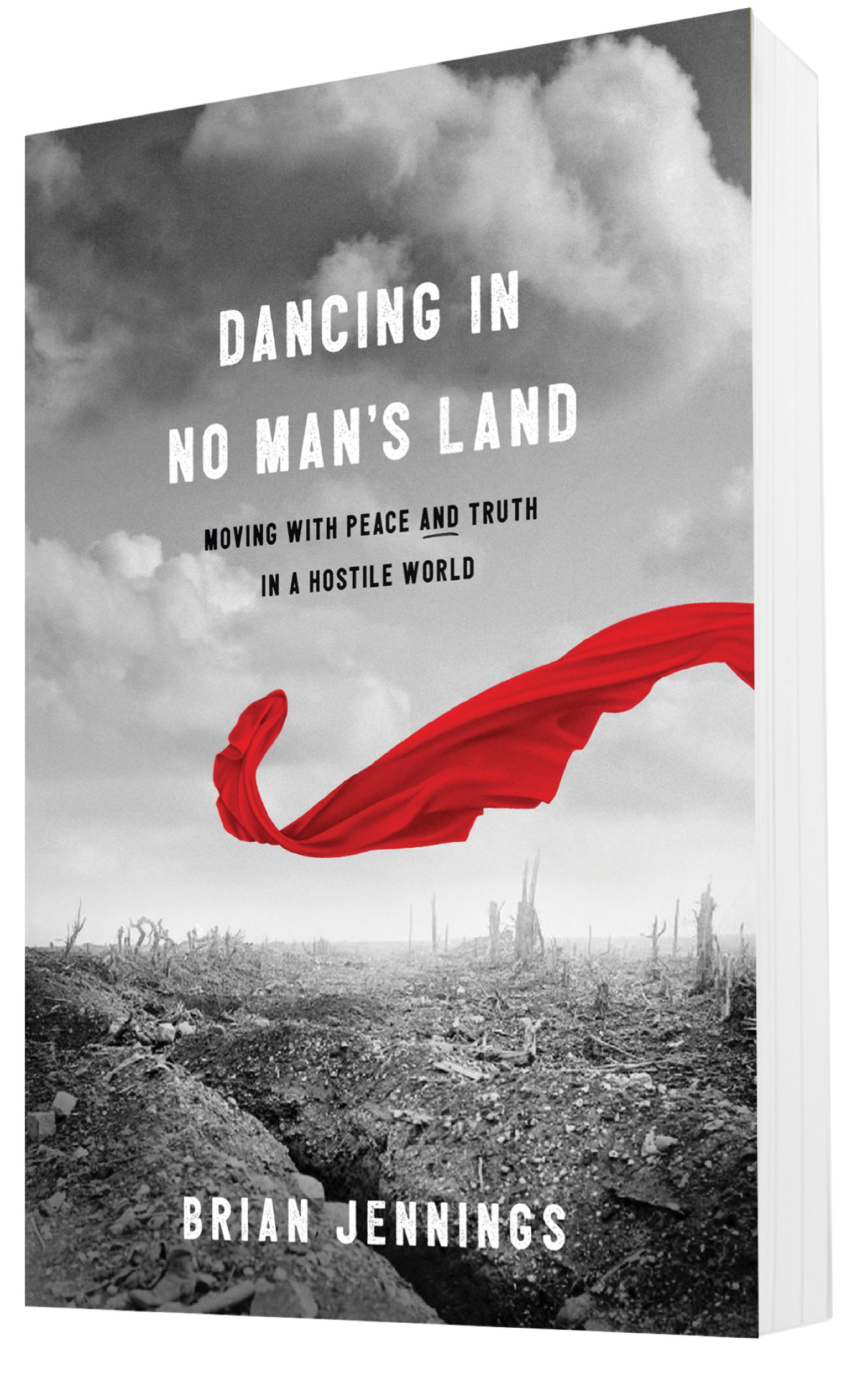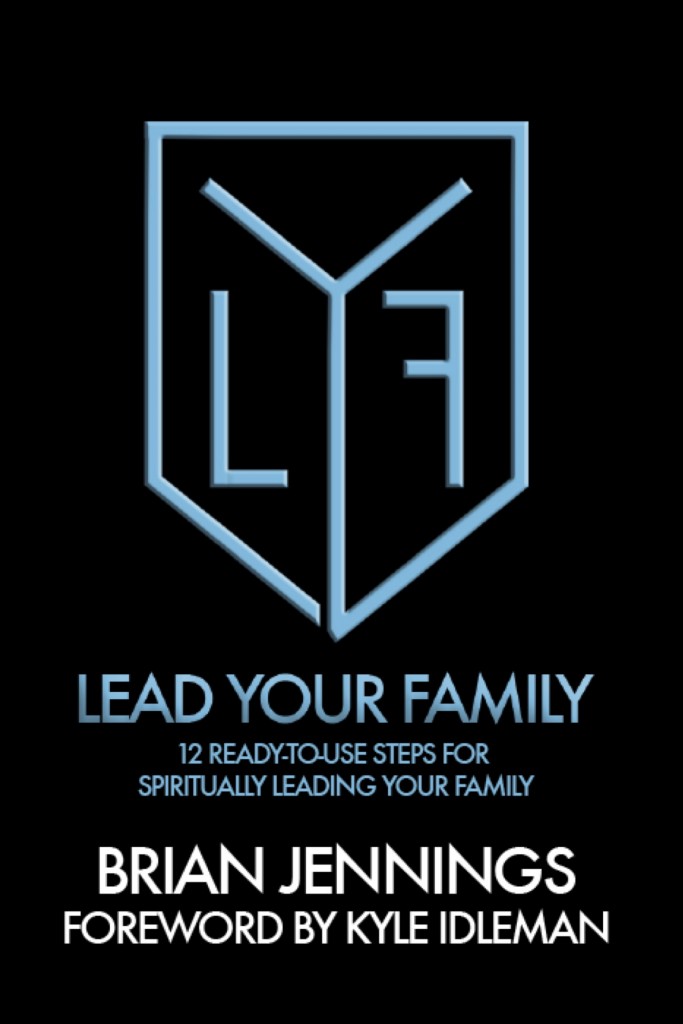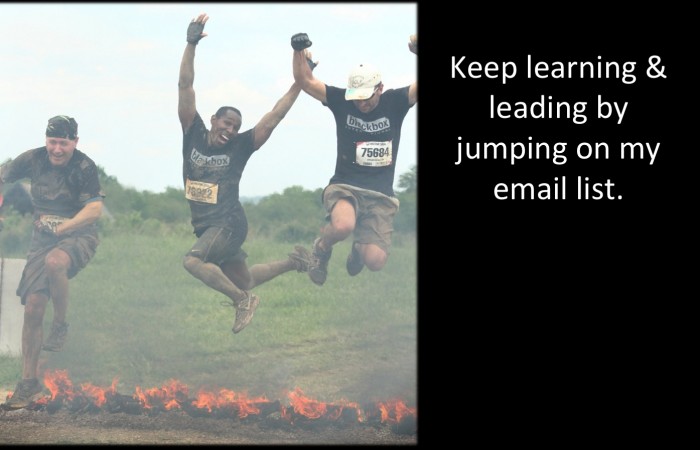How To Help Without Enabling
Written by Brian Jennings, Posted in Your Church, Your World
In a previous ministry, I met a young man who had a lot to overcome relationally, financially, emotionally, physically, and spiritually. At times he made great progress. But when he made a bad choice, his past amplified the consequences. It wasn’t unusual for him to ask me for help, and it wasn’t unusual for me to give it. We were friends, and I knew he had virtually no other support system.
But then something happened. I began to feel less like a friend and more like a taxi driver/ATM machine/get-out-of-trouble-helper/grief counselor. Bitterness crept into my soul.
Before long, our relationship felt toxic. I think we both felt like failures. I failed at helping him. He failed at helping himself.
Compassion Fatigue is a very real thing. Moses once wailed, “God, why are you doing this to me? Why do I have to baby all of these people. The burden is too heavy. Just go ahead and kill me” (my loose paraphrase of Numbers 11).
We’ve all been in the position of needing to help someone, so let me share one definition, three responsibilities, and a few guiding questions. They won’t make every decision easy, but they will give you some guidance.
A helpful definition of love
To Love: To do what is in the best interest of the other person (in God’s perspective).
To love someone means we don’t do what is in our own best interest. It doesn’t even mean we’ll do what they always ask us to do. But it does mean that we’ll do what God believes is in their best interest.
This type of love requires compassion AND wisdom. With God’s compassion flowing through us, we will approach people without judgment or cynicism. As Jesus did, we’ll sit and listen to the needy person. So without compassion, wisdom will be lacking. And without wisdom, your compassion won’t last long.
Three Responsibilities
1. It’s my responsibility to help those in need, because God loves them.
God has some sharp words for those who do not care for the poor.
“Do not exploit the poor because they are poor and do not crush the needy in court, for the Lord will take up their case and will exact life for life” (Proverbs 22:22-23).
“Whoever oppresses the poor shows contempt for their Maker, but whoever is kind to the needy honors God” (Proverbs 14:31; Also see Proverbs 21:13; 22:22-23; 14:21; 14:31; 29:7; 19:17; 31:9; Matthew 25).
Eric Mason makes the case for what he calls intervening justice. It means we get personally, deeply involved with the people suffering and in need of justice, healing, and help. It means we take a posture of listening, humility, and teachability. The compassionate person doesn’t condemn someone on public assistance while knowing nothing about their story or assume an uneducated person is lazy.
The compassionate person is willing to enter the messes of people’s lives. If you avoid people in the midst of brokenness (whatever kind it may be), you need to know 2 things:
- Your advice isn’t needed or helpful, because neat, easy theories don’t stay neat and easy when you fly them into the jungle. It gets messy. So if you aren’t entering the tough situations that leave you crying for wisdom, you need not offer advice.
- You are walking away from the path of Jesus. He said he came to be with the sick, the lost, the needy, and those needing served. You can’t follow Jesus and avoid messy people.
2. It’s my responsibility to use wisdom when helping, because it’s possible to hurt those we are trying to help.
“It’s possible to hurt people you are trying to help.” When our Food Pantry team acknowledged that reality, the whole game changed. Good hearts weren’t enough. If we really cared about helping people, as opposed to just feeling good about giving stuff to people, we had to be wise. So we read, toured places, studied, and prayed. We’re still learning, but we’ve always committed to wisdom.
Individuals and organizations who unwisely (try to) help people will become frustrated, jaded, and cold. They’ll eventually walk away. And the people they’ve tried to help will have both dignity and responsibility ripped away from them. Everyone loses.
We must go back to the definition of love. A child may ask for cotton candy for breakfast, but a loving parent would know better. Wisdom helps us love people by giving them what is in their best interest (which is ultimately the same thing as what is in God’s interest).
3. It’s my responsibility to give credit to God, because all good things are from him.
“You may say to yourself, ‘My power and the strength of my hands have produced this wealth for me.’But remember the Lord your God, for it is he who gives you the ability to produce wealth, and so confirms his covenant, which he swore to your ancestors, as it is today” (Dt. 8:17-18).
When someone helps us, it’s a gift from God. When we help someone, it’s a gift from God. It’s wonderful to help and be helped, but God always deserves the credit. This removes both pride and shame.
Guiding Questions
OK, those are some big picture principles, but let’s keep going. Some of you are trying to help someone, and you have no idea if you are on the right track. I know the feeling! Again, these aren’t magic questions that will answer every dilemma, but they will help.
Does the person you are trying to help:
- Treat you as a friend or a resource? If they don’t treat you as a friend, begin focusing your efforts on building a friendship. Ask them to do something that friends would do (walk in the park, drink coffee, or volunteer together at church). Choose stuff that won’t put you in the position of paying for them. If they reject repeated attempts at friendship, you’ll learn a lot.
- Express sincere gratitude or entitlement? If they aren’t learning to be grateful, are you really helping?
- Commit to doing what is good and right? We’re not demanding perfection, but we certainly don’t want to encourage destructive behavior.
If you are helping someone:
- Are you running empty on compassion?
- Are you operating without wisdom?
- Are you praying for God to give you both?
- Who can encourage you, with Godly maturity, in your journey?
If you are being helped by someone:
- Are you expressing sincere appreciation?
- Are you kind when someone declines your request for help, or do you attempt to make them feel guilty, shamed, or wounded?
- Are you still looking to bless others? It’s so easy to be swallowed by our own problems. Force yourself to keep looking for people to encourage, even if it’s just one kind word.
- Are you working diligently?
How does God relate to us?
Here’s the news you didn’t want to hear: you’re a mess too. Compared to God, you and I are bigger messes than anyone else is compared to us. He’s perfect. We’re far from it. End of story.
Except it’s not the end of the story. And how we view God will shape how we care for others. Jesus was often rebuked for the enormous amount of grace he showered on others. “Seriously Jesus, you’ll even forgive THAT guy?!” His answer drops jaws.
But Jesus doesn’t always give us what we want. “No, James and John, you don’t get elevated status in heaven.” Or, “No thanks, I’m going to head to the next town now.” Jesus doesn’t always give us what we ask for, but he always gives us what we need.
I know that helping others can be excruciatingly difficult. Take a deep breath. Jesus loves you with compassion and wisdom. He’s smiling as you serve him, so take joy in that.
Resources:
The first book I’d recommend if you want to dive deeper is When Helping Hurts.
I unpacked the content from this post in a sermon on 8/11/2019.
The driving metaphor in my recent book, Dancing in No Man’s Land, has also proved valuable in these situations. I give a full chapter to our socio-economic divides and what you and your church can do about it.






